twist_gatton.jpg

Twist gatton2.jpg

In the 1980s, the audience for Louisiana music was a mere handful of hipsters fans. Music collector types. Louisiana music wasn't on radio or commercials or movie sound tracks. There was no "Treme." The local musicians we take for granted today were barely gigging in town much less touring. The nation wasn't conscious of our music's magic except for the tourist who stumbled into a Snooks Eaglin show or heard WWOZ in a taxi. However just that little exposure could convert a tourist into a almost-religious-like adherent to our music and culture. Like new religious adherents, these music adherents endlessly proselytized about listening to Louisiana music, "Just listen to this, it'll change your life!"
Marc Gretchel must have been one of those true believers because there was no rational business reason for him to dig into his shallow pockets and rent a huge American Legion Hall to present Louisiana bands to the button-down, sterile audiences of Washington, D.C.
His only offering in this huge hall was a "foreign sounding" music. He didn't provide food, advertising or atmosphere much less the advanced tickets or seating that is de rigor in formalistic DC. In the American city most pre-occupied with status and power, Marc didn't even elevate the band with a stage. Bands played on the linoleum floor between the extension cords and flood lights. Picture a few friends selling beer and running the sound plus some Christmas tree lights hung from the too-low, too-stained false ceiling and you've got the scene. By doing everything the opposite of DC sensibilities, a New Orleans juke joint emerged.
And it worked. New adherents converted more adherents until huge crowds came out every weekend. On blind faith and their friend's prosletizing, people came to see musicians who's names they couldn't pronounce play music that they never heard before. They didn't know how to dance to the music but they couldn't stand still so they flopped around or just jumped up and down in excitement. They came back over and over and they soon evolved from an "audience" to "acquaintances" to "friends." In those days before social media, they passed around newsletters about the music and themselves. Many eventually went onto marry and even bury each other.
It was a magical time and place but it was limited by the boundries of the DC music scene. That is until a then-unknown local musician named Mary Chapin Carpenter wrote the song "Twist and Shout" about the club's vibe. The song was as infectious as the vibe of the Twist and Shout and the song won a Grammy. Then Mary sang it at the Superbowl halftime here in New Orleans and that little music club's vibe was shared with hundreds of millions of people who never heard Louisiana music or crossed the threshold of The Twist and Shout. Marc and all the music prosletizers were right. (Here's her video along with the crowd from the club.)
This Saturday night, Marc Gretchel will join me to share memories and music of his club, "The Twist and Shout" as we try to recapture the vibe. Music of Louisiana musicians like, Johnny Adams, Lazy Lester and John Delafose along with DC musicians like Danny Gatton, Bobby Radcliffe and Bill Kirchen. Here's the playlist. Here's a stream of the show
Ironically, as WWOZ changes the format of its playlists, this tribute show to a defunct club may be the last of my goofy playlists. (I'll figure out another <better> way of posting video and text through the WWOZ site.)



















